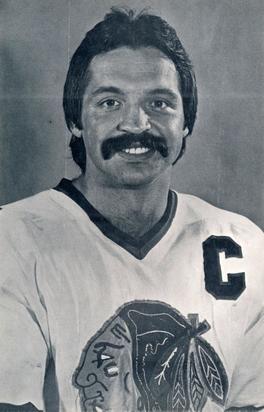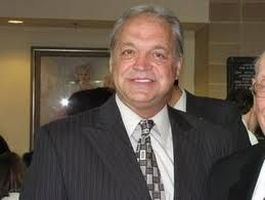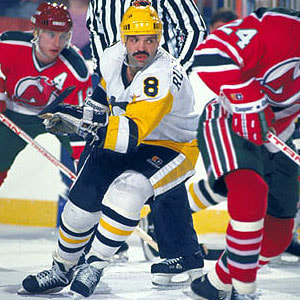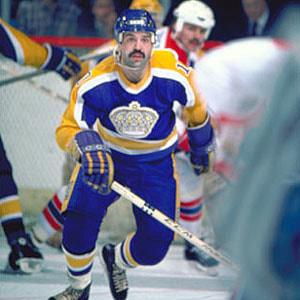|
We have legends and characters and greatness in our midst, and plenty of stories. For our first interview we reached out to Terry Ruskowski, former captain of the Houston Aeros, Chicago Black Hawks, Los Angeles Kings, and Pittsburgh Penguins. Terry shared great affection for his 1970-71 season with the Humboldt Broncos… How did a kid born in Prince Albert end up playing for the Humboldt Broncos and not the Raiders?
What was your most memorable experience in the year that you played with the Broncos? We beat Saskatoon – they were 1st and we were 4th – and we beat them in the 7th game in their own building. My knee had been hurt pretty bad, and our coach Dr. Henning had rested me up for 3-4 days in the hospital. Then he said you’re ok to play. I was limping around, they taped me up real good, and I just remember I played a lot that game. Killing penalties, power play, the more he played me the better I liked it. Even though I was out of breath, I just wanted to go out there and perform. It felt like the team was relying on it, and I didn’t want to let my team down. Trying to block shots, taking checks, giving checks, doing everything I could and we did win. I have it here in my scrapbook, the team couldn’t afford champagne so we were pouring orange crush on our heads. It was a tremendous feeling. We were so close as a team that even the guys that didn’t play very much were as happy as the guys that played a lot. It didn’t matter who scored, it just mattered that the team won. We proved the point that if you play as a team, you can win as a team. What effect did your experience in Humboldt have on your career? I went from there to Swift Current, from a population of 5,000 to 15,000. When I got drafted to Houston and then Chicago I was scared to death. I didn’t know what to expect, hearing about all these muggings and killings, what am I getting myself into? I had always been in a smaller town that was just a family affair. It wasn’t the big city, where after work everyone went their own way. In Humboldt, we all went together. There was no I, it was we. The whole team would go to a show, and even though I didn’t want to see the show, I went because that’s where the team was going. It was unbelievable, it was a great town, I was really blessed. It developed my career, developed me as a person, developed my hockey. It was probably the best thing that ever happened to me hockey-wise. What people have been your greatest influencers in your career? There was a coach Tim Nielsen when I was growing up back in PA, he influenced me quite a bit. There was another situation when I was playing midget hockey, I can’t remember the coach’s name. It was an all-star team playing against older kids. I was leading the league in scoring, having a real good season. Somebody lifted my stick in practice and cut me in the eye. I put on a big hissy fit and acted like a spoiled brat. The coach said, get off the ice. I said, are you serious? He said, yeah get off the ice. I was taking off my stuff and my dad came in. Then our general manager came in to see what was happening. I was complaining and he said, well just quit. Then he walked out. I looked at my dad and said, what just happened? That was really a humbling feeling. I said, you know what, I was totally wrong. I called back and apologized. That really taught me a lesson. Doc Henning, whether he knew it or not, probably drove me to be the best I could be. At a party after the season was over I said, Coach what do you think my chances are of making it to Swift Current next year? He said, Terry I love you as a player, you’re a hard-working kid, you do what you’re supposed to do. You’re not really fast, your shot is not great, your work ethic is fine, but it’s going to be a tough go. That inspired me. That summer I got a job in a meat-packing plant. It was just the worst job in the world. I was sweating working on the kill-floor, but I got really strong. Henning was right, I wasn’t very fast and I didn’t have a very good shot. But I wanted to prove him wrong, to prove that I could make it. I thought, you son-of-a-gun, even though I love you and I love Humboldt, I’m not coming back. I really respected the Rooney family. I played with Dr. Rooney’s son Pat, and he never acted like a general manager’s kid. When he got yelled at, he accepted it. I respected that a lot, I think the whole team did. I really liked the whole family, they were class people. What was the best piece of advice you received playing hockey? You are going to make it on determination and hard work. If you do that things should fall into place. I knew what I had to do, nobody had to tell me. I knew I had to scrap, and to stick up for my teammates. I knew that I had to be physical. Even if the score was 9-0 for or against, it was all out, all the time. That’s how I learned to do it, and that’s the way I continued to play even in the NHL. Elgar used to walk past my house every day on his way to practice. He was just so supportive, I’ll always remember that. Even when I stunk the place out, he’d say you played good Terry. He was always a positive guy, I loved that about him. When the rink was named after him I was so happy. What is your key message as a coach or leader? Win hockey games and you’ll make your coach happy. I demand perfection. If we used my system, played hard, and were diligent, we were pretty successful. My job was to make sure they were diligent in their duties and their work ethic, that they came to play every night. Be diligent in what you’re doing. You are the only player in history to be the captain of 4 different WHA/NHL teams. Why do you suppose that happened? All I know was my style of play. I always stuck up for my teammates, no matter what happened. If somebody cheap-shotted a teammate, even though I knew I was going to get the wrong end of the stick, I’d do something to show my teammate that I had his back. I think my work ethic, doing things hard all the time, maybe influenced other players to do the same. There were times I was pretty vocal in the dressing room. One time in Pittsburgh I threw a skate right through the chalkboard. I remember the coach opened the door about 6 inches and then closed it right away. I was really upset. We had a pretty good team and we weren’t showing it. After that we went on for a good streak, winning 5 or 6 in a row. I hated losing. After a loss at home, the players would go out. My wife knew we were going home. What is there to celebrate when we lose? I couldn’t figure it out. When we win, let’s go have a good time. But after a loss, I just couldn’t do it. Plus, I think they made me captain because my wife threw great parties. I was very flattered and honoured to be made captain, like I am honoured to give this first interview with you guys. I did whatever I could to live up to their expectations, my expectations, and my team’s expectations. There are about 1,000 players eligible to be part of the Humboldt Broncos Alumni Association. What would you say to encourage them to sign up? I really like what you’re doing with the alumni. It’s very important to stay in touch with the people you played with, sweated and bled for. I think it’s a great idea to help the community as much as possible. The community might not realize what they’ve done for the old guys, what they’re doing for the present, and what they’re going to do for the future Broncos. They might not understand how important they were to our lives.
Fellas, look what Humboldt has done for you. Be proud of what you have done. Be more proud of what you are going to do to help the community. Even though you may not be there, you know in your heart you are helping the community that loved you, that cared for you while you were there. Give the love back. Please say hello to everybody for me. All the best to the people in Humboldt and to the Broncos.
0 Comments
|
AlumniFeaturing Alumni Stories & Interviews ArchivesCategories |





 RSS Feed
RSS Feed
